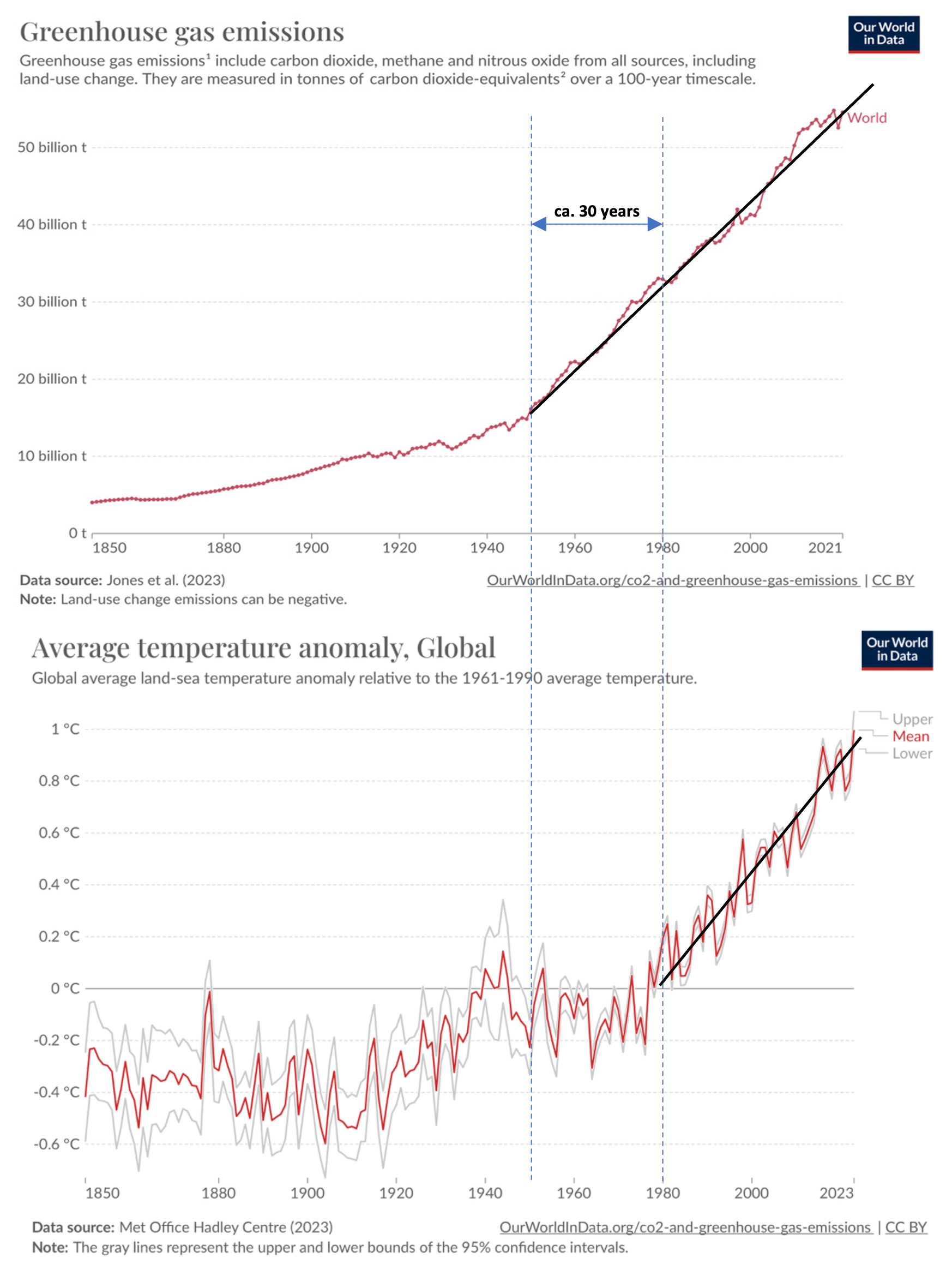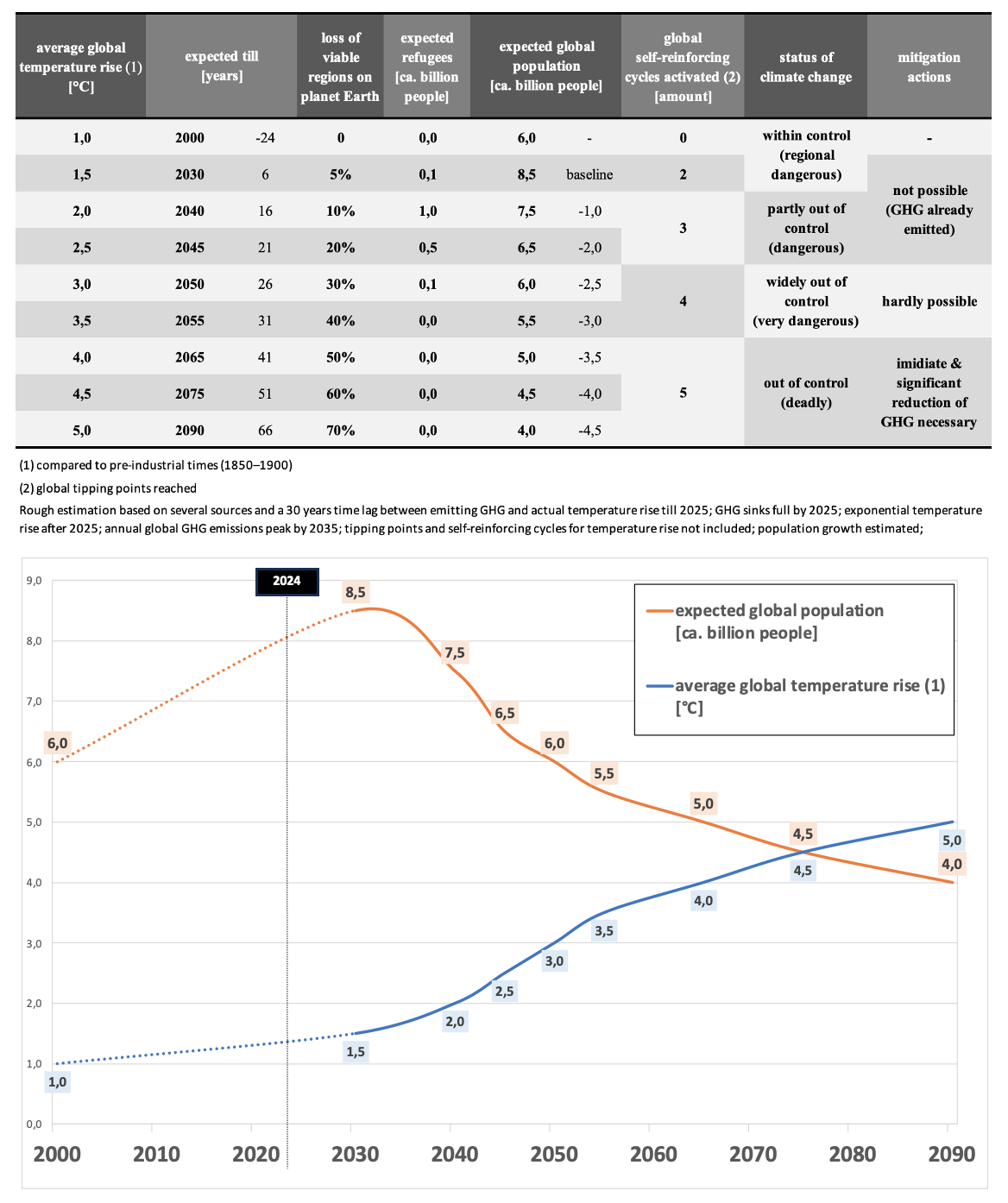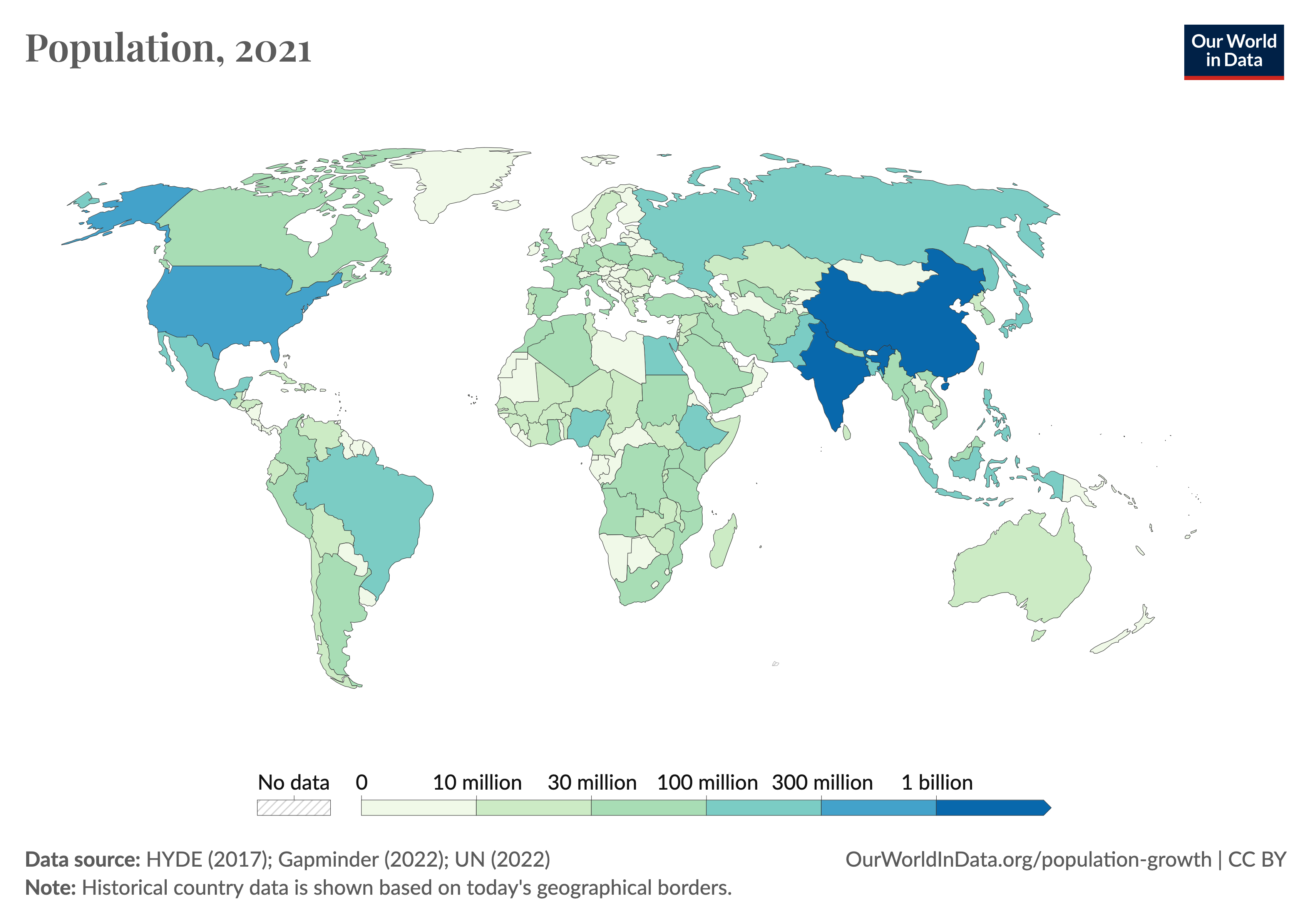“80 percent of people globally want stronger climate action by governments.”
UN Development Programme survey, June 20, 2024 (https://peoplesclimate.vote)
Over 73.000 people speaking 87 different languages across 77 countries were asked 15 questions on climate change for the “Peoples’ Climate Vote 2024” survey. United Nations Development Programme (UNDP) and the University of Oxford conducted a “Computer Assisted Telephone Interviewing” (CATI) survey from September 2023 till May 2024 with a total of 1,9 million calls made and achieve 73.765 interviews across 77 countries (ca. 1.000 interviews per country in average). Sampling was primarily done by “Random Digit Dialing” (RDD) of mobile phone numbers, with quota management for groups defined by age, gender and education. (“Peoples’ Climate Vote 2024”, p. 94ff., https://peoplesclimate.vote/document/Peoples_Climate_Vote_Report_2024.pdf)
We very much acknowledge this approach taken by UNDP to further push forward climate actions. We recognised significant media attention (e.g. prime news) for the results of the survey.
With global warming, climate change, and the loss of biodiversity we are in our view currently heading into the most sever humanitarian catastrophe with (not thousands, not millions, but) potentially billions of people losing their livelihood and/or their lives.
The latest G7 Summit held in Italy (from June 13-15, 2024) showed very week global governance, and the latest “June UN Climate Meetings (SB 60)“, the so called “Bonn Climate Conference” (from June 3-13, 2024), showed only “modest steps forward” (UNFCCC press release, June 13, 2024).
We see a ca. 30 years time gap between GHG emissions and actual temperature rise (“climate lag” see graph). This means, we already emitted enough GHG into the atmosphere of our planet Earth to have a global average temperature rise of at least 2,2°C till ca. 2050 (in comparison to the global average between 1850-1900 with a very optimistic linear projection). GHG sinks like the ocean, the terrestrial surface (forests, plants and soil, mainly) and the atmosphere were able to delay the temperature rise but seem to be full now. This gives rise for the assumption further temperature rise will be exponential with same amount of annual GHG emissions.

Based on this understanding, we see a scenario till the end of this century with a decrease of global population down to about 4,0 billion people. The situation with global warming, climate change, and the loss of biodiversity will be “widely out of control” (ca. after the year 2045) or “out of control” (ca. after the year 2055) due to tipping points reached and self-reinforcing cycles activated.

We pledge for a global direct democratic vote on climate actions
We have the scientific evidence, we have the global media coverage and we have the communication technology to organise a global, democratic and secure voting (a first global referendum) with at least about ca. 5,4 billion people (67% of the world’s population are using the internet in 2023, itu.int) with relative ease within months.
Strong leadership means to enable (grass-roots) democracy. A global vote will be aligned with the “Universal Declaration of Human Rights”, give a clear and strong direction on climate actions and will strengthen global and national democracy.
